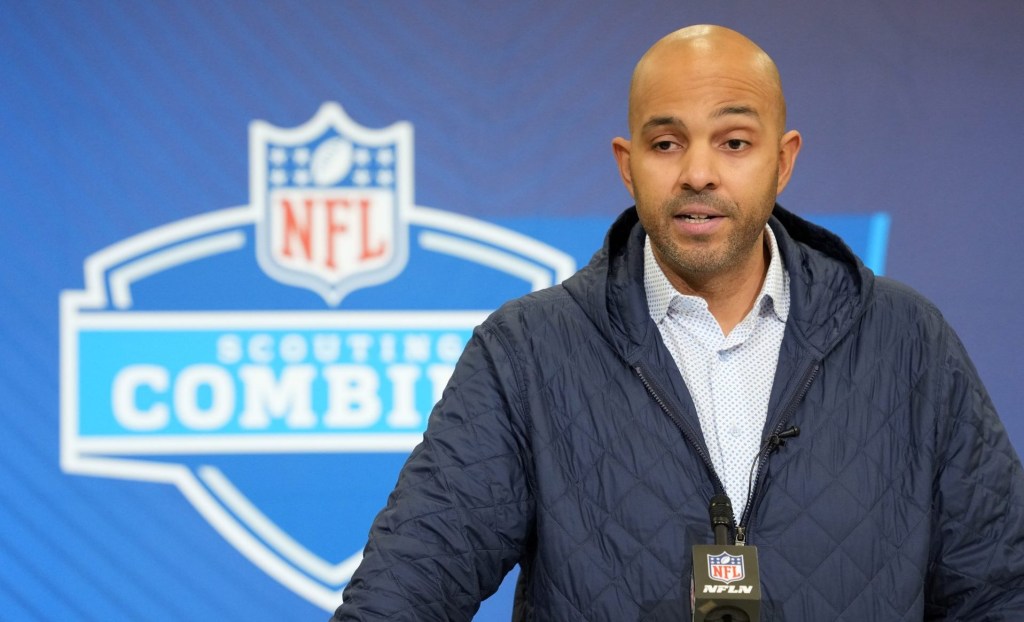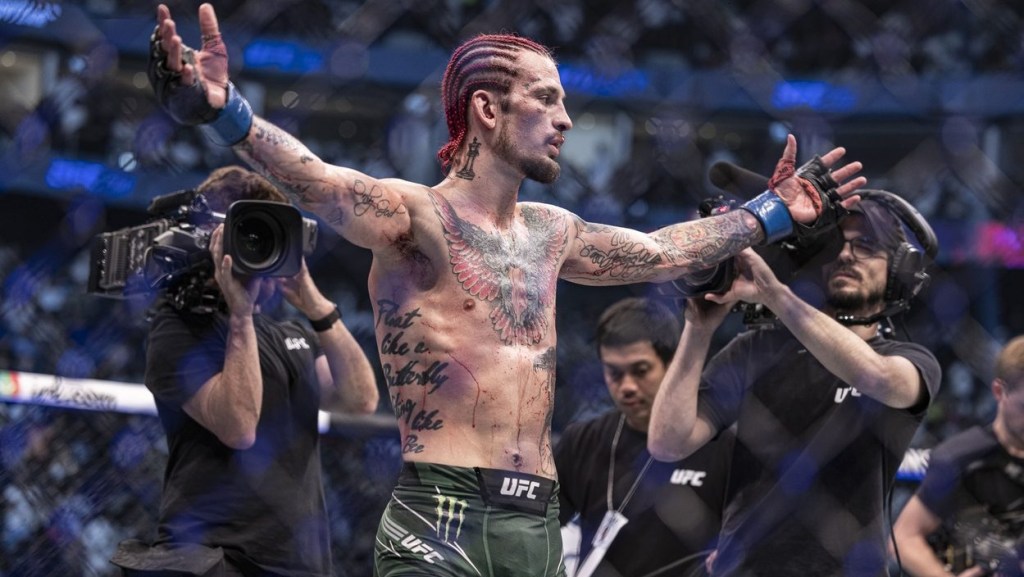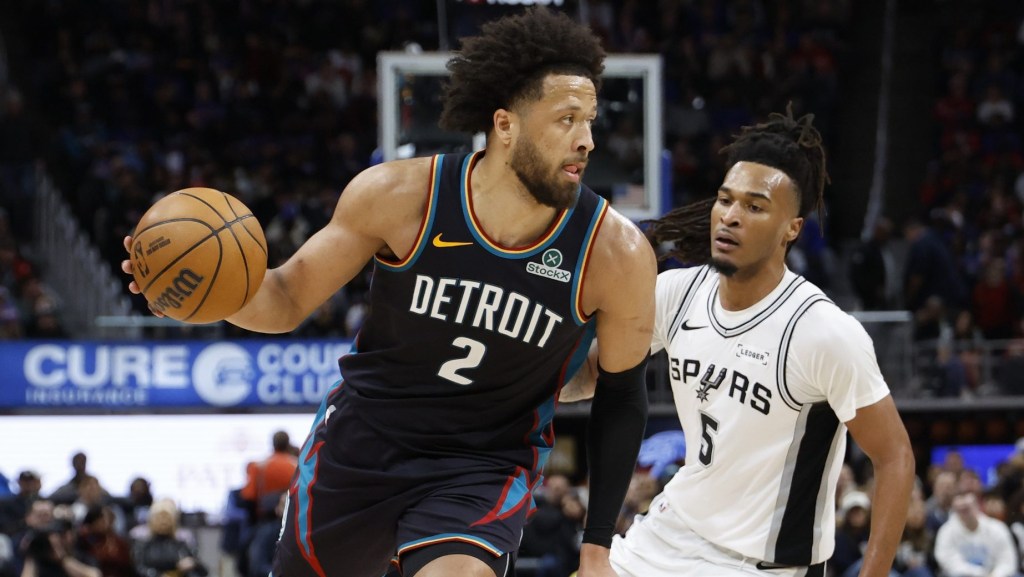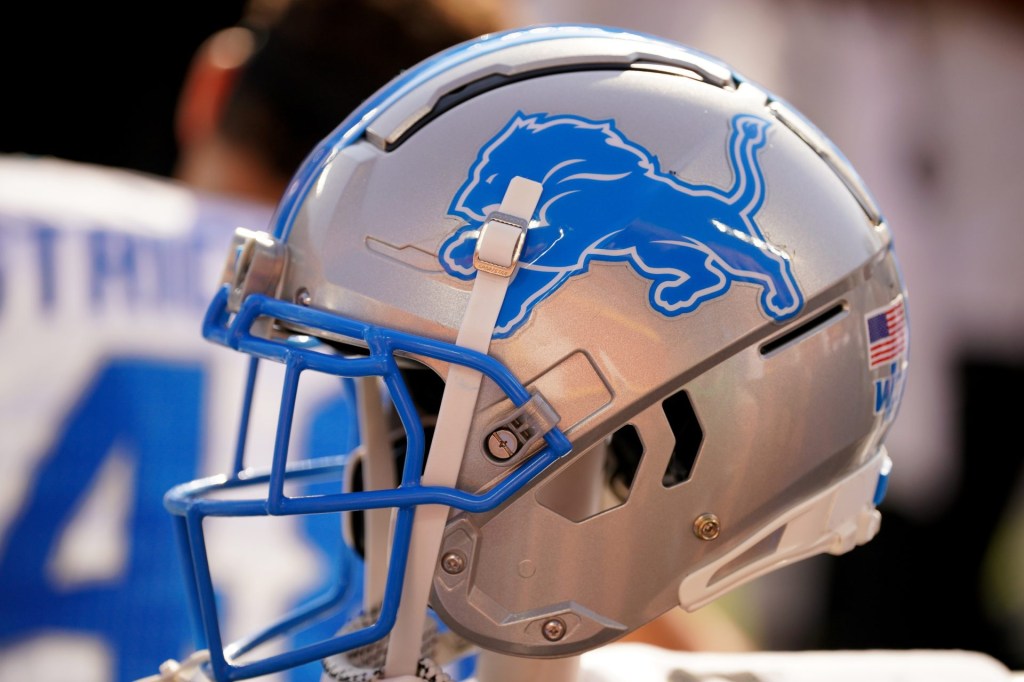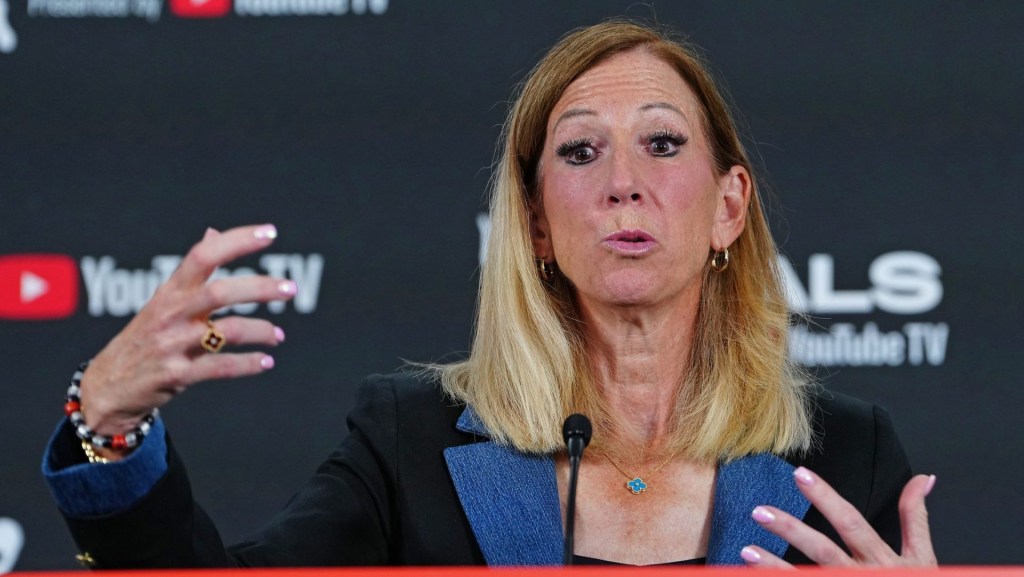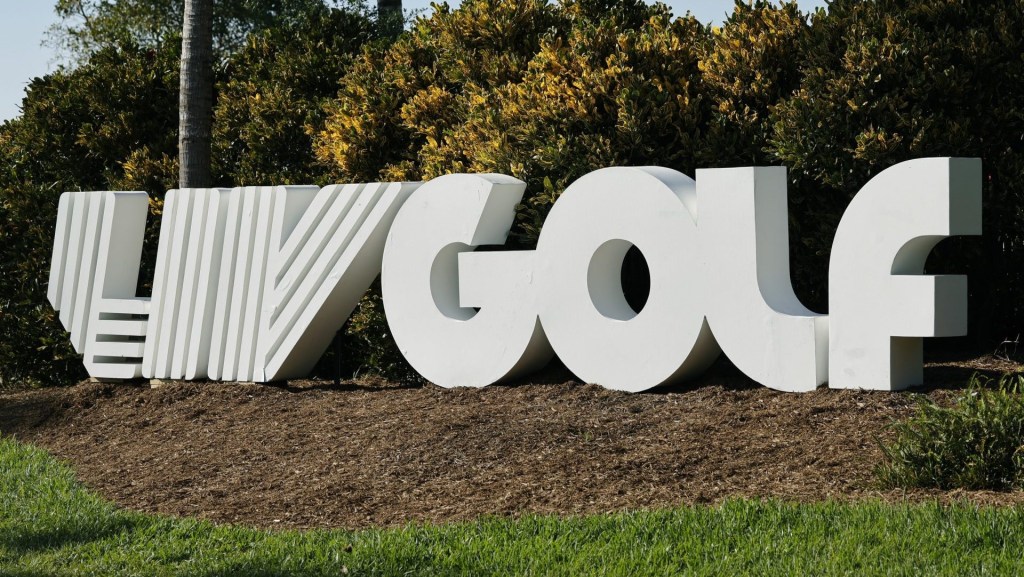ATLANTA — Despite a recent run of growth in baseball, the sport is grappling with existential shifts in media and competitive balance that demand large-scale change, MLB commissioner Rob Manfred said.
Meeting early Tuesday with the Baseball Writers’ Association of America, Manfred heightened his call for a systemic overhaul in the game’s economics, citing historic disruption in existing revenue models such as the regional sports network business.
“When I talk to players, I don’t try to convince them that a salary-cap system would be a good thing. I identify a problem in the media business and explain [to players] that owners need to change to address that problem,” he said. “I then identify a second problem that we need to work together on, and that is there are fans in a lot of our markets who feel like we have a competitive balance problem.”
Manfred has also pointed to the top 10% of MLB players earning nearly three-quarters of all salaries.
To the MLB Players Association, however, that rising call for change means owners will indeed revive their call for a salary cap. The union is stridently opposed to any salary-cap-based system, believing it would fundamentally impair player compensation and disrupt recent gains in attendance and viewership.
“A cap is not about a partnership. A cap is not about growing the game,” MLBPA executive director Tony Clark said. “A cap is about franchise values and profits. … This is not about competitive balance. This is institutionalized collusion.”
Manfred, however, did acknowledge that low-spending clubs such as the Pirates—a particular point of contention for the union—is a growing problem.
“We need to deal with that issue,” the commissioner said yesterday on ESPN.
ESPN Rights in Limbo
Manfred said the league is nearing a resolution on reselling media rights being abandoned by ESPN after the season. A prior hope of reaching deals by the All-Star Game, however, did not materialize.
The commissioner did not detail specifics, but ESPN is believed to be still in the mix on a potentially reworked agreement, along with other networks. Manfred worked on the matter while attending the Sun Valley Conference in Idaho, which drew many top media executives.
Rays Sale Moving Forward
The $1.75 billion sale of the Rays to a group led by Jacksonville developer Patrick Zalupski is on track to be completed this fall, Manfred said, essentially confirming reports there is now an agreement in principle.
Manfred, meanwhile, also said that George M. Steinbrenner Field in Tampa, the club’s temporary home ballpark, will host all potential Rays postseason home games, including in the World Series—despite prior concerns about the venue’s capacity of about 10,000 and its inability to meet the usual business demands of the playoffs.
“I understand it’s a unique situation,” Manfred said of the Rays. “It’s different, but that’s where they’re playing.”
More Big Issues
- Both the A’s and Rays playing in minor league ballparks this season, meanwhile, continued to draw rebukes from the union—particularly the interim tenure of the A’s in Sacramento while a new ballpark in Las Vegas is built. “Playing in a minor league ballpark is less than ideal,” Clark said. “One was an act of God. One was a decision.” There has been no advanced discussion of other options, however, and rehabilitation of the Rays’ Tropicana Field continues.
- Efforts continue to have MLB players compete in the 2028 Los Angeles Olympics. The Olympic baseball tournament is set for July 15–20 at Dodger Stadium, a schedule that would have minimal disruption to the MLB schedule. Other considerations, such as changes to league media rights and insuring players, remain in process, though. “There’s a lot of work that still needs to be done. … We’re hopeful that we can figure our way through it for the benefit of the game,” Clark said.
- A sale of the Twins will also happen, Manfred said, despite bidder Justin Ishbia dropping out recently and instead striking a multi-stage deal for the White Sox.
“I’m confident that a transaction will take place,” Manfred said.
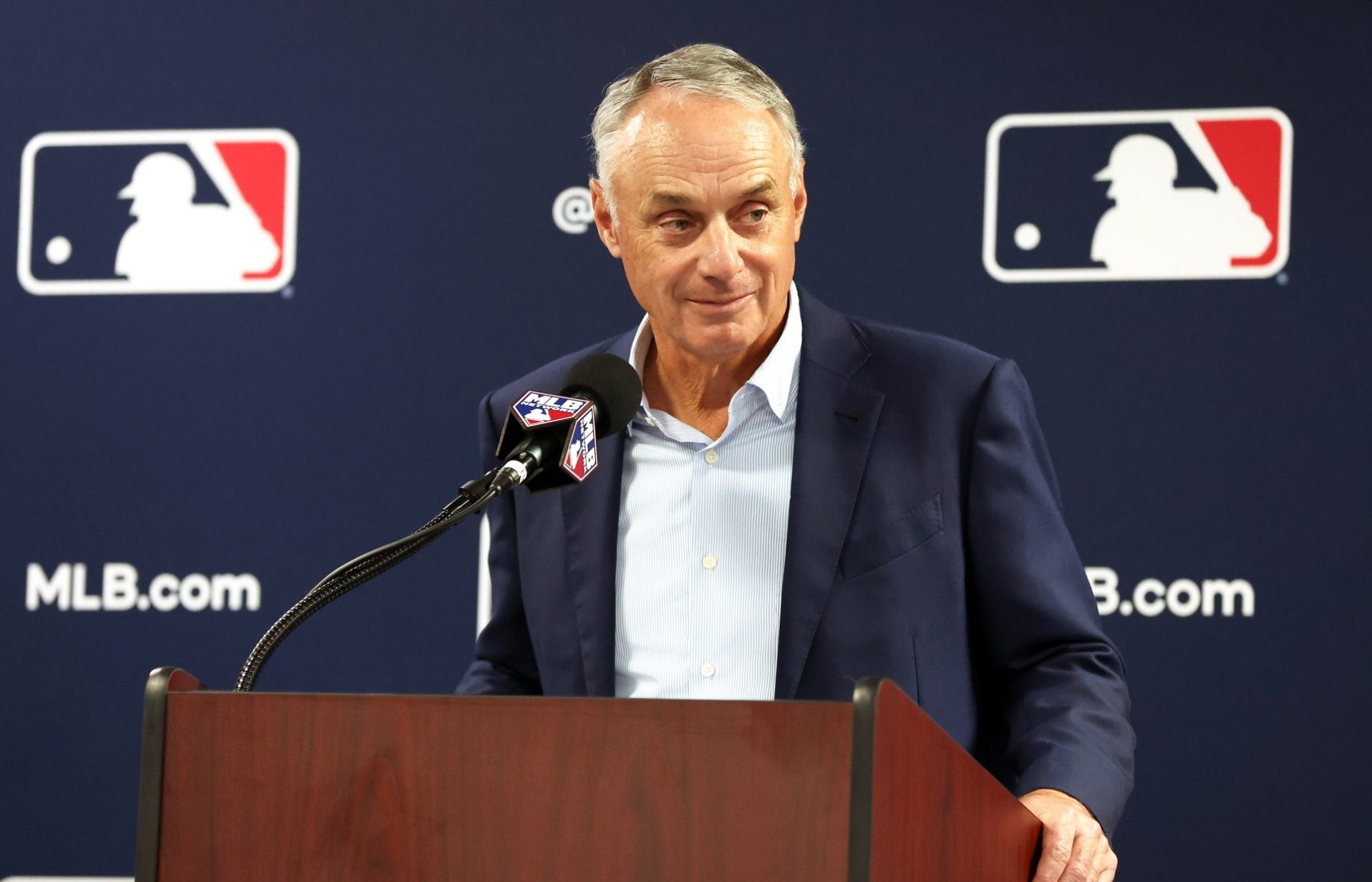
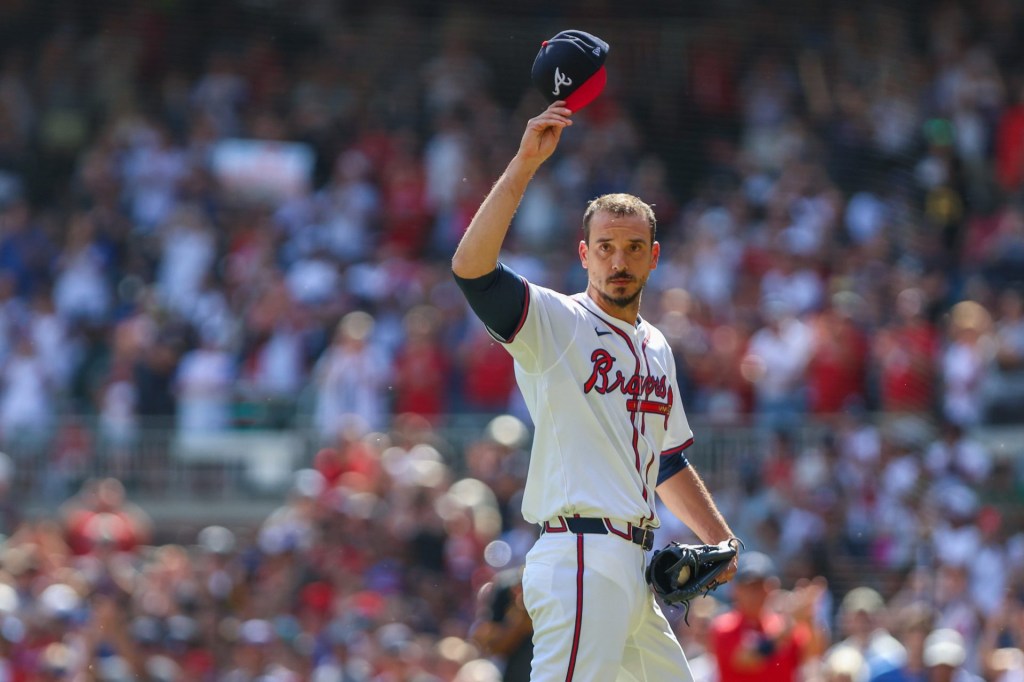
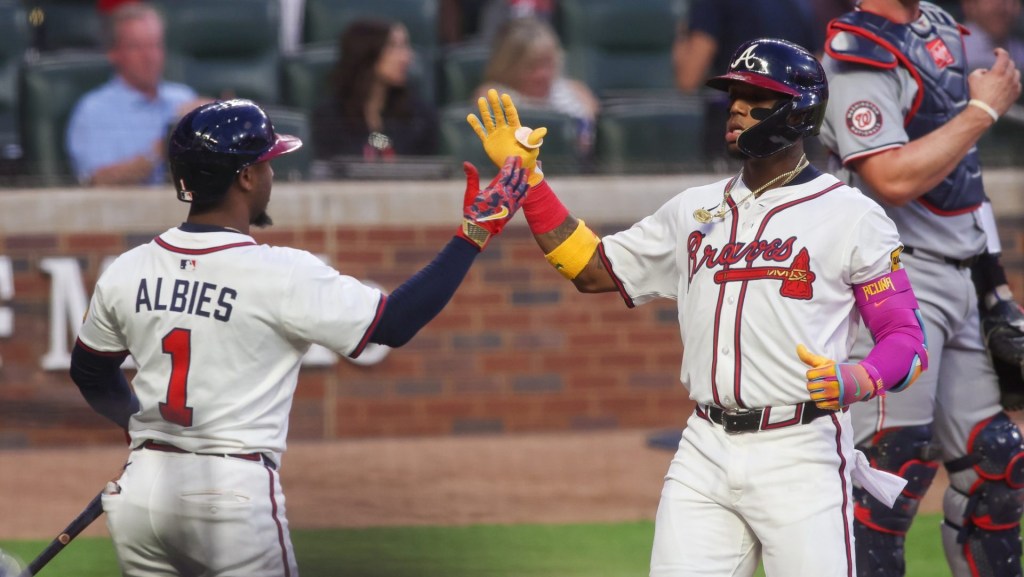
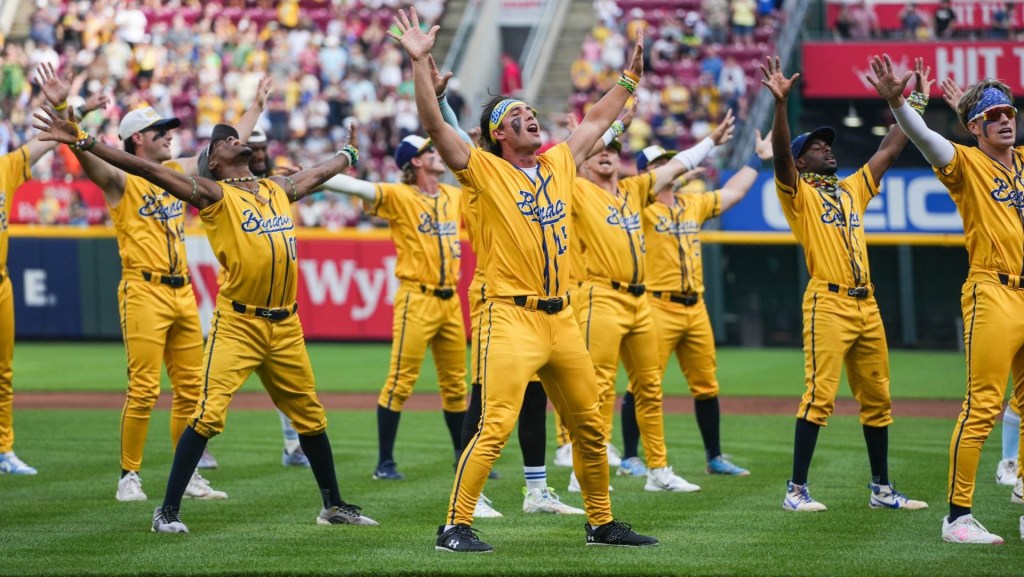
![ESPN Bet broadcasts inside the PGA Tour Studios building in Ponte Vedra Beach, Florida, on March 14, 2025. [Clayton Freeman/Florida Times-Union]](https://frontofficesports.com/wp-content/uploads/2026/02/USATSI_25668497_168416386_lowres-1-scaled.jpg?quality=100&w=1024)
![[Subscription Customers Only] Jul 13, 2025; East Rutherford, New Jersey, USA; Chelsea FC midfielder Cole Palmer (10) celebrates winning the final of the 2025 FIFA Club World Cup at MetLife Stadium](https://frontofficesports.com/wp-content/uploads/2026/02/USATSI_26636703-scaled-e1770932227605.jpg?quality=100&w=1024)




